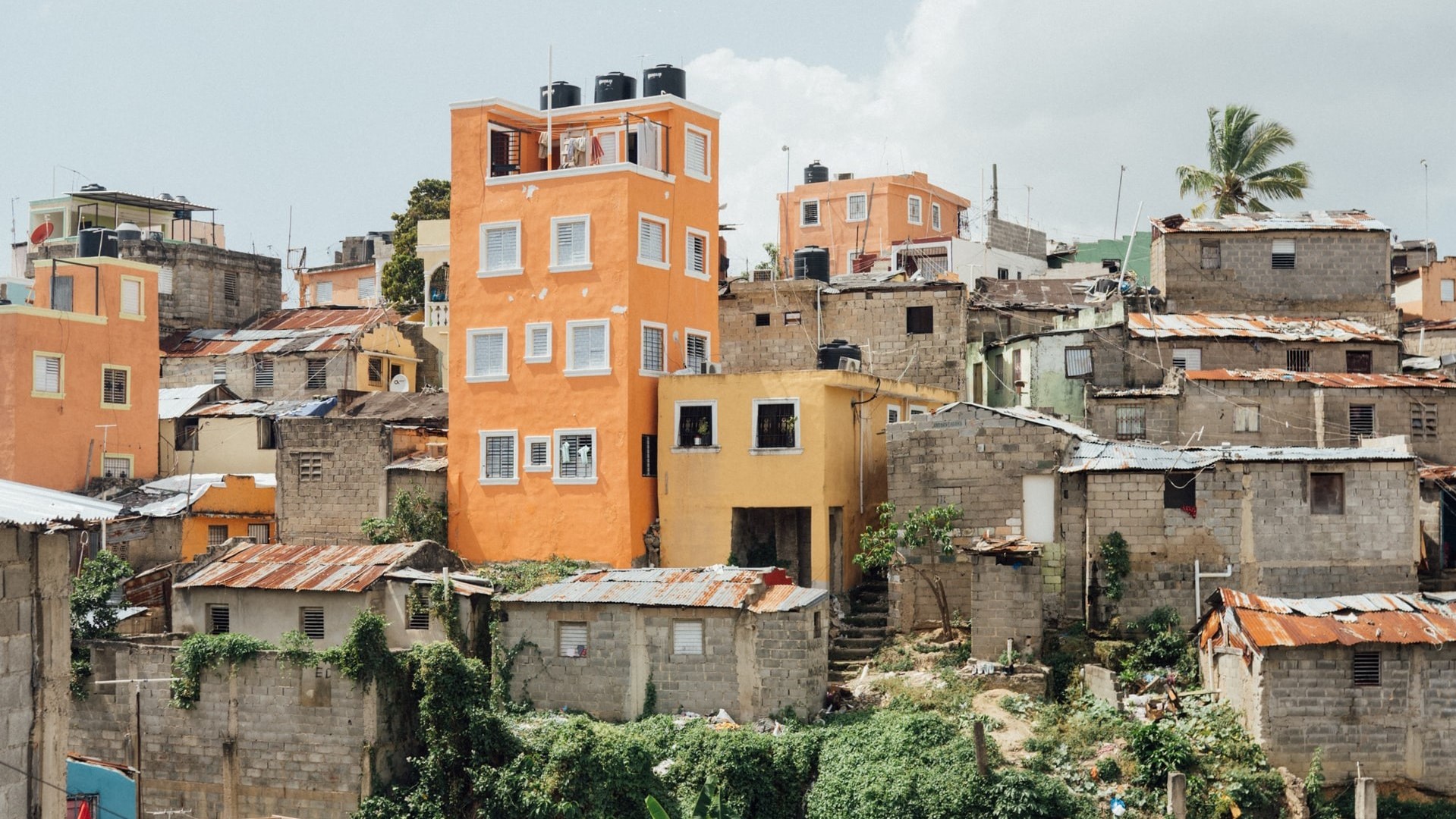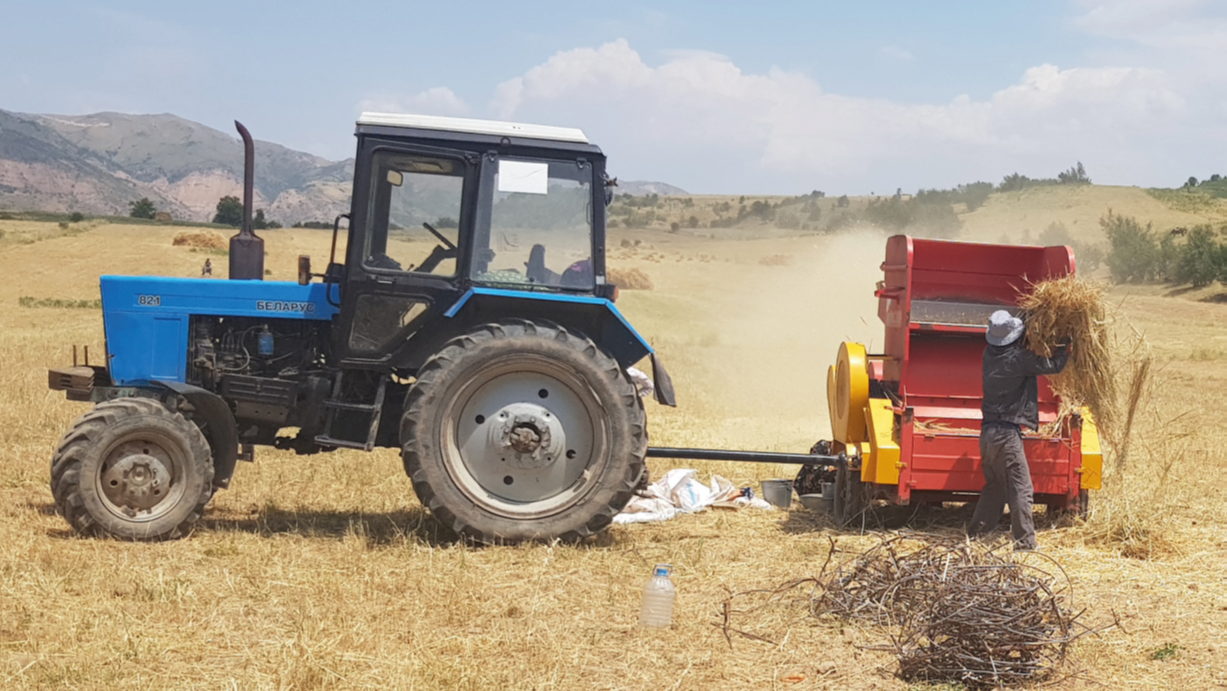Monitoring and evaluation making a difference in Egypt - IOE
Cairo, 29 October 2021 – The Independent Office of Evaluation (IOE) of IFAD seeks to expand its excellent collaboration with the Government of Egypt, as the Office plans to further strengthen the monitoring and evaluation (M&E) capacity of IFAD programme countries. Between 23 and 29 October 2021, Indran A. Naidoo, Director of IOE, presented these opportunities to high-level counterparts from the Arab Republic of Egypt, as he joined members of the IFAD Executive Board and senior management for a high-level visit to the country.
“The Board visit to Egypt was an excellent way to witness first-hand how IFAD works at the country level, and to see the way it engages with government and communities. We saw significant evidence to show that the various streams of intervention have been successful and continue to grow both in terms of the number of beneficiaries, and of having impact at the environmental level. It was an amazing experience”, Dr Naidoo stated.
The visit allowed Board representatives to experience IFAD’s work on the ground, and observe the strengths and challenges that the organization faces in carrying out its mandate. During the visit, Dr Naidoo and the members of the Board engaged with development partners and senior government officials, including H.E. Mostafa Madbouly, Prime Minister of Egypt, H.E. Rania A. Al-Mashat, Minister of International Cooperation, and H.E. EL-Said Marzouq El-Qosair, Minister of Agriculture and Land Reclamation, with whom they discussed IFAD’s role in Egypt.
“A key factor for success is when you have the highest level of government support and a very good collaboration with IFAD on the ground. This was and is very much the case in Egypt. We engaged with the central ministries, we met the Prime Minister, the Minister for International Cooperation, and the Minister for Agriculture. They have all given the highest level of support to IFAD’s intervention – which is financially very significant”, Dr Naidoo highlighted.
Focusing on possibilities for future capacity development, Dr Naidoo outlined the possibility to explore opportunities for developing M&E capacity for rural development in Egypt, as a pilot, working with the Global Evaluation Initiative (GEI). Dr Naidoo explained that this approach would expand the work on national evaluation capacity that the Ministry of Planning, Monitoring and Administrative Reform of the Government of Egypt facilitated in the context of the National Evaluation Capacity (NEC) conference.
“From a broad evaluation point of view, it was very encouraging to note that the government now has a very strong M&E system. We very much look forward to working with the government as we plan future assessments”, Dr Naidoo said.
Held in 2019, The NEC conference brought together over 500 people from 117 nations and governments, with trainings delivered by 30 international experts, including in Arabic. Amina Mohammed, UN Deputy Secretary-General, and H.E. Hala Helmy El Saeed, Minister of Planning, Monitoring and Administrative Reform, delivered opening remarks alongside Dr Naidoo.
Other topical issues addressed by members of IFAD’s Executive Board during their deliberations with Egyptian policy makers included public policies on community infrastructure, water management, microfinance, and agricultural technologies as a means of promoting rural development. These meetings were complemented by a portfolio presentation by the Cairo UN Multi Country Office team reflecting lending and non-lending activities, in addition to site visits to projects co-funded by IFAD and the Government of Egypt.
“We are proud of our strategic and highly productive partnership with Egypt that marks four decades of a successful model of cooperation aimed at reducing poverty, addressing food insecurity and contributing to the resilience and improved livelihoods of more than eight million rural people,” explained Dina Saleh, IFAD's Regional Director for the Near East, North Africa, Central Asia, and Europe division.
The field visits allowed Board members to deepen their knowledge of activities on the ground, and to hold discussions with beneficiaries, farmers’ organizations, cooperatives, private-sector representatives and local government authorities. Sites included a livestock and dairy processing farm in West Noubaria, and a metrological station, aquaponics greenhouses, nurseries and biogas units in the Kafr El Sheikh Motobus District. In addition, Board members spent time at the Amreya Artificial Insemination Center, established under the West Noubaria Rural Development Project (WNRDP), and currently operated by the Sustainable Agriculture Investments and Livelihoods (SAIL) project.
“The artificial insemination centre has proven to be a sustainable project. It no longer has IFAD funding, and has been taken over by the government. It is now self-funding and is working extremely well. Another project that we visited focuses on building the capacity of women in textile production. This has empowered women both in terms of receiving income and also in their ability to engage more with the economy. We also saw several successful projects in the field of agri-business, and projects where deserts are being irrigated and are now producing cash crops, such as mangoes,” Dr Naidoo reported.
IOE evaluated these projects and activities in 2017, through both the Egypt Country Strategy and Programme Evaluation (CSPE), and the Project Performance Evaluation of the West Noubaria Project.
“An element that prevailed throughout the mission was the use of the last completed evaluation done by IOE. This was the basis for understanding the progress that has happened over the past few years. The recommendations that IOE made are being acted upon. It is very much a case where evaluation has worked, it has provided evidence, it’s been acted on and can now be tracked in terms of progress. This really shows the impact of IFAD’s interventions both as a funder and a supporter in a very large country”, Dr Naidoo underscored.
IFAD currently has three ongoing projects in Egypt: Promoting Resilience in Desert Environments (PRIDE); Sustainable Agriculture Investments and Livelihoods (SAIL); and the Promotion of Rural Incomes through Market Enhancement (PRIME) project. IFAD is investing US$ 203.47 million in these rural development projects out of a total cost of US$ 284.49 million. The projects are expected to benefit over 616,000 people in rural areas.
“The contributions of our member states are crucial in pursuing our shared goals in supporting rural people, developing rural economies and effectively investing in programmes that will help countries to end poverty by 2030 as part of their commitment to the Sustainable Development Goals,” Ms Saleh noted.
Egypt is IFAD’s largest recipient of financial assistance in Near East and North Africa, and was one of the first countries to receive the Fund’s financing. Since 1978, IFAD has supported rural poverty alleviation in Egypt through 14 developmental programmes and projects with a total value of US$ 1.1 billion, of which IFAD financed US$ 519.28 million, reaching more than 7 million people.
For further information, please contact Alexander Voccia at [email protected]




